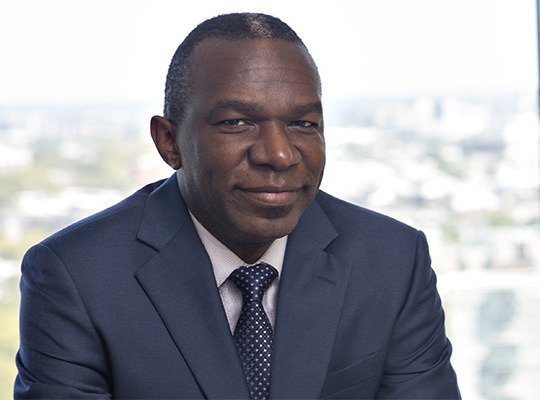How Corporate America Can Help Defeat Modern-Day Slavery
Sadly, modern-day slavery is a reality in many parts of the world, even though the United States and other Western democracies outlawed the evil practice 150 years ago or more. More than 40 million people are presently bonded under modern-day slavery, according to the United Nations’ latest estimates. Nearly 25 million are forced laborers. One of every four is a child. These gut-wrenching figures leave no doubt that more can and should be done to eliminate the wretched practice, wherever it exists.
In the U.S., in an effort to rid the domestic market of products connected to overseas slave practices, at least one state (California) has enacted legislation (the Transparency in Supply Chains Act) to require certain businesses to investigate and disclose any use of forced labor in their supply chains. The U.S. House and Senate each have pending before them bills proposing similar transparency measures. And according to recent reports, the White House will be implementing a ban on cotton produced with forced labor in China, which is one of the three largest cotton-producing countries worldwide.
To be sure, new legislation and executive actions that shine a spotlight on the modern-day slave scourge are laudable and deserve serious consideration. At the same time, the U.S. government already has significant enforcement tools that it can effectively deploy now. This article showcases the current legal framework to combat this global problem. Any company with a global supply chain should be aware of these statutes and take proactive measures to avoid falling within their ambit, whether unwittingly or not.
Federal Criminal Statutes
Federal law already makes it a crime to knowingly benefit from forced labor. Notably, 18 U.S.C. Section 1589 proscribes the direct and indirect use of forced labor by providing criminal liability for “whoever knowingly benefits, financially or by receiving anything of value from participation in a venture which has engaged in” the use of forced labor. Although companies cannot be imprisoned, they can be prosecuted and punished for violating Section 1589. In 2019 alone, a total of 28 defendants were charged with 48 counts of violating Section 1589, according to the Human Trafficking Institute.
In addition, 18 U.S.C. Section 545 is the nation’s most powerful criminal statute for prosecuting those who knowingly bring merchandise into the U.S. “contrary to law.” In relevant part, that statute provides that anyone who “fraudulently or knowingly imports or brings into the United States, any merchandise contrary to law” commits a felony punishable by up to 20 years in prison. It also imposes the same maximum penalty on other actors in the supply chain, making it a crime whenever anyone (whether an individual or company) “receives, conceals, buys, sells, or in any manner facilitates the transportation, concealment, or sale of such merchandise knowing the same to have been imported or brought into the United States contrary to law.” And Section 545 allows federal prosecutors to seize the tainted merchandise or its value as part of any criminal prosecution.
Section 545’s potency lies in its flexibility. It explicitly criminalizes the entire supply chain—and punishes downstream actors in the same way and to the same degree as the person or entity who brought (or attempted to bring) the illegal merchandise into the U.S. market. Thus, the Justice Department can prosecute the full panoply of supply-chain actors, so long as those who handle the merchandise at the point of entry or thereafter know that it entered the country “contrary to law.” And, according to the U.S. Court of Appeals for the Seventh Circuit’s decision in United States v. Ladish Malting Co., “corporations ‘know’ what their employees who are responsible for an aspect of the business know.” So, strong internal policies, training and compliance systems can serve as both swords and shields for liability.
Moreover, the predicate acts available under Section 545 are even more sweeping than the Racketeer Influenced and Corrupt Organizations Act, which has specified qualifying unlawful activities. Federal prosecutors can choose virtually any criminal “law” as the qualifying Section 545 predicate, although the circuits are divided on whether regulatory or other offenses with criminal features can qualify as eligible predicates. Irrespective, there is no shortage of criminal statutes for prosecutors to deploy to bring Section 545 prosecutions. Indeed, Section 545 can work in tandem with Section 1589, along with other anti-slavery laws, to result in the prosecution of anyone—whether a company or person—who knowingly imports or brings into the U.S. any merchandise made from slave or forced labor anywhere in the world.
As with the Foreign Corrupt Practice Act, which took roughly three decades to become a top prosecutorial priority, it is not difficult to imagine DOJ ramping up its investigations and prosecutions of Section 1589 and Section 545 cases, irrespective of politics or the administration in power.
Tariff Act of 1930
In addition to criminal enforcement, the U.S. government can pursue civil remedies for would-be violators who transact in the products of slave, forced or child labor. Section 307 of the Tariff Act of 1930 forbids the “entry at any of the ports of the United States, and the importation” of any merchandise “mined, produced, or manufactured wholly or in part in any foreign country by convict labor or/and forced labor or/and indentured labor.” Like Section 545, Section 307 allows U.S. Customs and Border Protection to exclude and seize such merchandise at the border.
Government Contractor Anti-Trafficking Provisions
The federal government is the single largest purchaser of consumer goods and services in the world at approximately $550 billion annually. In 2015, the Federal Acquisition Regulatory Council, together with other agencies, promulgated rules to implement an Executive Order mandating that all federal contractors take steps to combat slavery and human trafficking in their supply chains.
The FAR provisions apply to all contractors and subcontractors who sell to the U.S. government. Specifically, these provisions prohibit contractors, subcontractors, their employees, and their agents from “us[ing] forced labor in the performance of [a] contract.” Beyond that straightforward prohibition, the FAR also bars various human trafficking-related activities.
Further, contractors and subcontractors are required to cooperate fully with “contracting agencies and other responsible Federal agencies” investigating potential FAR violations. And they are required to self-report “immediately” to contracting officers and the agency Inspector General “any credible information” of FAR violations by their employees and agents.
Inter-Agency, Federal-State, Cross-Border Collaborations and ‘Carbon Copy’ Prosecutions
Because modern-day slavery is a worldwide problem, it requires a global solution that includes the effort, cooperation and vigilance of global companies. But when proactive, voluntary measures fail (or are inadequately implemented), companies face the risk of multi-dimensional enforcement actions that can take multiple forms. That includes inter-agency, federal-state, cross-border multi-nation enforcement actions and collaborations, whether on a serial or simultaneous basis.
Indeed, as the DOJ and Securities and Exchange Commission reported in their 2020 edition of the FCPA Resource Guide, those agencies have coordinated resolutions with foreign authorities in numerous FCPA cases. This potential for collaboration does not mitigate the threat of “carbon copy prosecutions,” a term coined by one of the authors of this article to describe prosecutions by separate sovereigns to punish the same conduct. Thus, where international double-jeopardy does not serve as a bar or impediment to multi-pronged enforcement actions, a single forced-labor legal problem can quickly spawn multiple prosecutions around the globe—not to mention potential civil liability as well.
As their size, wealth and influence grow, global corporations can be a powerful force for good to root out modern-day slavery in their supply chains. Companies should promptly implement compliance programs that integrate these legal mandates into existing internal controls and compliance systems. Not only is it the right thing to do, it also prevents the negative consequences that can befall a company that fails to act proactively—including reputational damage, consumer class actions, and federal, state and/or foreign enforcement.
Andrew Boutros, Andrew Levander, David Kelley, Vince Cohen, Michael McGinley and Sozi Tulante are partners in Dechert’s White Collar, Compliance and Investigations group, focusing on a range of matters, including white-collar crime, compliance, enforcement and complex litigation.
Dechert associate Shriram Harid assisted in the preparation of this article.
Reprinted with permission from the September 10, 2020 issue of National Law Journal© ALM Media Properties, LLC. Further duplication without permission is prohibited. All rights reserved.





